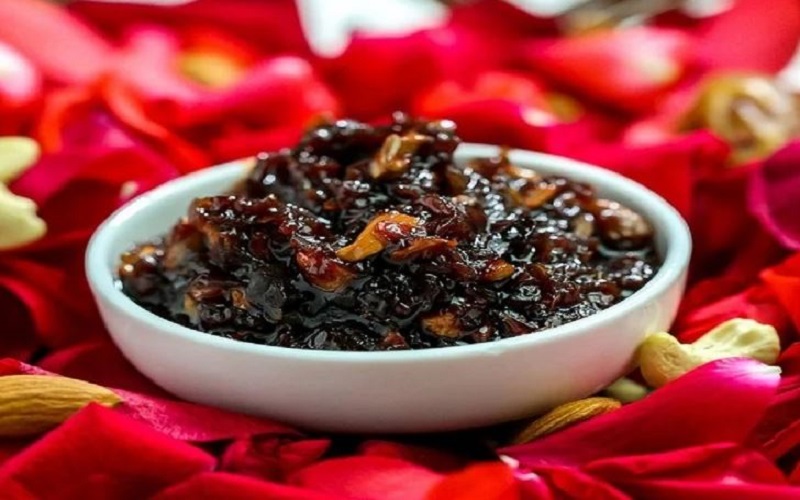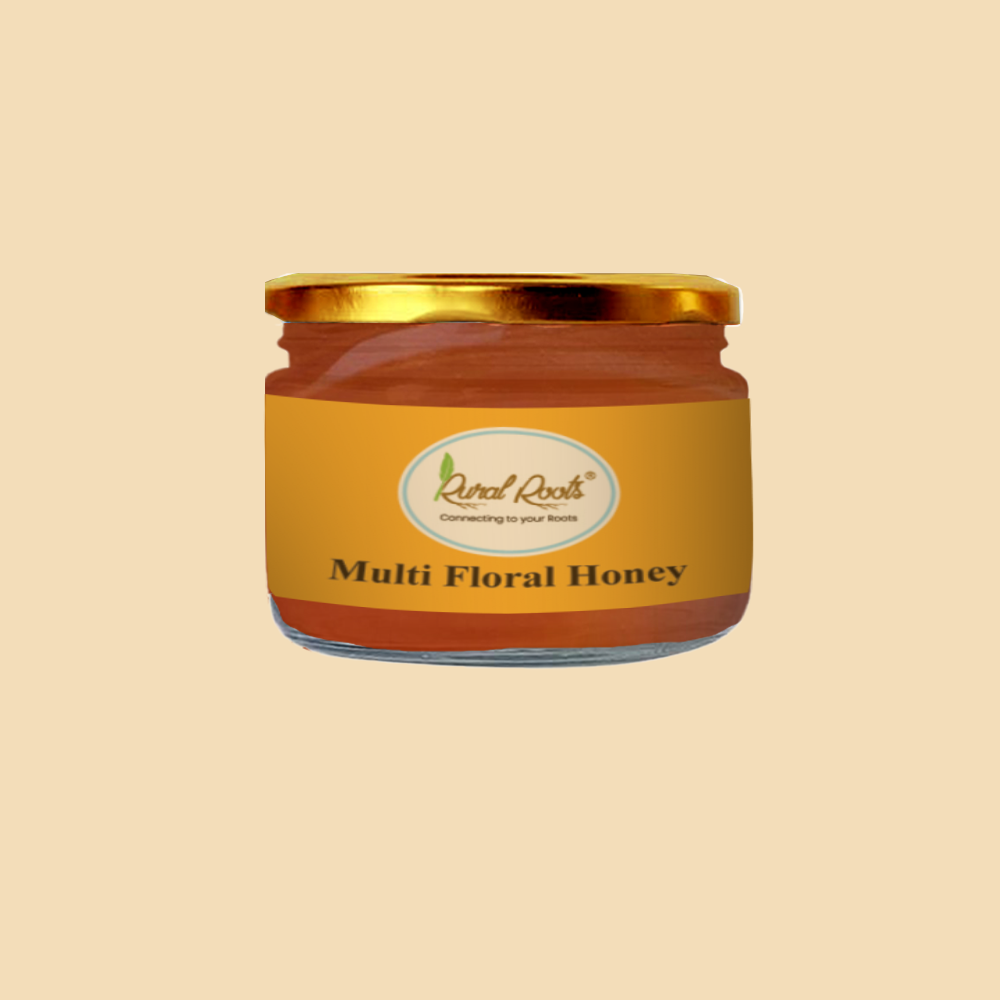Description
Gulkand, also spelled as “gulqand” or “gulkhand,” is a sweet preserve made from rose petals and sugar. Here’s some information about gulkand:
- Ingredients: Gulkand is made by layering fresh rose petals with sugar in a container and allowing them to macerate for several weeks or months. Over time, the sugar draws out the moisture from the rose petals, creating a sweet and fragrant mixture. Some variations of gulkand may include additional ingredients such as cardamom, saffron, or edible silver or gold foil.
- Flavor and Aroma: Gulkand has a unique flavor that combines the sweetness of sugar with the floral aroma of rose petals. It has a rich, jam-like consistency and a delicate floral taste with hints of honey and fruitiness. Gulkand is known for its cooling properties and refreshing taste, making it a popular ingredient in traditional Indian sweets and desserts.
- Culinary Uses: Gulkand is used in various ways in Indian cuisine and Ayurvedic medicine. It is commonly consumed on its own as a sweet treat or added to desserts such as ice cream, lassi (yogurt-based drink), kulfi (Indian ice cream), or falooda (a cold dessert beverage). Gulkand is also used as a flavoring agent in milkshakes, smoothies, and cocktails. Additionally, gulkand is believed to have medicinal properties and is used in Ayurveda to promote digestion, cool the body, and balance doshas.
- Health Benefits: Gulkand is considered to be beneficial for overall health and well-being. It is believed to have antioxidant, anti-inflammatory, and antibacterial properties. Gulkand is also thought to help improve digestion, relieve acidity and heartburn, and promote skin health. In Ayurveda, gulkand is often recommended during the summer months to cool the body and alleviate heat-related ailments.
- Storage: Gulkand should be stored in an airtight container in a cool, dry place away from direct sunlight. Properly stored, it can last for several months to a year. It is important to use clean, dry utensils when scooping out gulkand to prevent contamination and spoilage.






Reviews
There are no reviews yet.